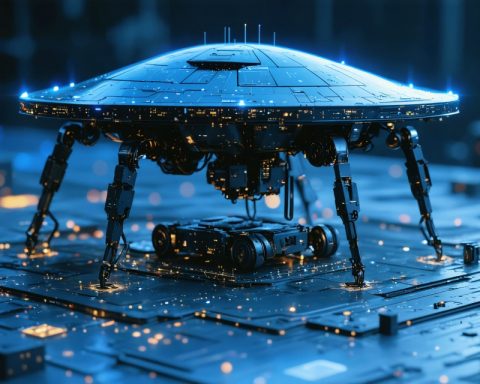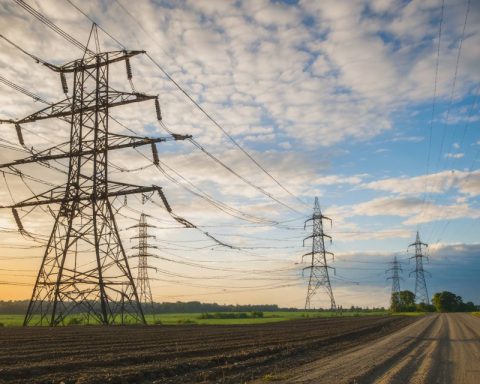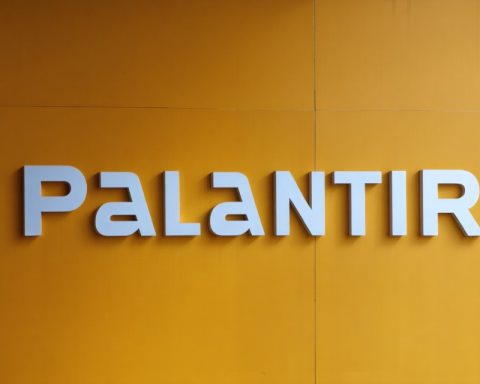- South Korea plans to build a $35 billion data center, designed to provide up to 3 gigawatts of power, positioning it as a global AI hub.
- Predictions indicate that by 2030, AI technology could require over 5 gigawatts of electricity globally.
- This massive project will compete with emerging AI hubs in Malaysia, Thailand, and India, due to factors like lower labor costs and available space.
- Global investments are surging as countries enhance AI infrastructure as part of a strategic race for technological leadership.
- High-profile investors, including industry leaders like Elon Musk, are making significant offers to acquire AI trailblazers, highlighting the high financial stakes.
- The AI landscape is evolving rapidly, driven by substantial infrastructure projects and an intensifying race for innovation.
The world stands gripped by an artificial intelligence fever, with South Korea throwing its hat into the ring in a spectacular fashion. As nations embark on billion-dollar quests to power up their AI arsenals, South Korea’s audacious plan to erect a mammoth $35 billion data center is nothing short of a technological marvel. Towering over existing structures, this center promises up to 3 gigawatts of power, dwarfing similar projects in Texas spearheaded by Softbank.
Vivid visions paint a future where these colossal facilities hum with the energy needed to sustain increasingly complex AI models. With power consumption likely to soar, projections suggest that by 2030, AI giants might gulp down over 5 gigawatts of electricity. In response, countries worldwide are shoring up their infrastructure, sparking an investment frenzy across the globe.
Yet this is no mere race for resources—it’s a strategic chess game. The sprawling center in South Korea will clash with emerging hubs in Malaysia, Thailand, and India, where low labor costs and abundant space present tantalizing advantages. The stakes are immensely high in this bid for AI dominance, with each player vying to outpace the other.
In the midst of these digital transformations, industry magnates like Elon Musk make audacious moves, aiming to possess the core of AI innovation. His staggering $97.4 billion offer for OpenAI, though rebuffed, underscores the lengths to which investors will go in this AI epoch.
As tensions and investments escalate, one thing remains clear: the AI future is here, powered by formidable projects and boundless ambition.
Discover How South Korea is Shaping the Future with Its Mega AI Data Center
How South Korea’s $35 Billion AI Data Center Stacks Up
Real-World Use Cases
South Korea’s massive AI data center is set to enhance several sectors:
1. Healthcare: AI can revolutionize diagnostics, patient monitoring, and personalized medicine, leading to better patient outcomes. Facilities like this can facilitate faster processing of medical data and support research.
2. Autonomous Vehicles: By providing the computing power required for real-time data analysis, autonomous vehicles can become more efficient and safe.
3. Smart Cities: This center can support infrastructure to improve urban planning, traffic management, and environmental monitoring.
Market Forecasts & Industry Trends
The demand for AI data centers is on the rise globally. According to Market Research Future, the AI data center market is expected to reach approximately USD 18 billion by 2027, growing at a CAGR of 32% from 2020 to 2027. This trend highlights the growing reliance on AI technology across industries and the critical role of data centers in supporting this growth.
Reviews & Comparisons
In terms of capacity, South Korea’s center dwarfs older projects like the massive data centers in Texas and emerging facilities in Southeast Asia. However, the real challenge lies in operational efficiency and sustainable energy use, which newer centers are focusing on.
Controversies & Limitations
While the development of large data centers brings technological advancement, it also raises concerns:
– Environmental Impact: Large energy consumption could have a significant carbon footprint unless there is adequate integration of renewable energy sources.
– Geopolitical Tensions: The competition to become AI leaders can lead to political and economic strife, especially if AI capabilities are perceived as drivers of national superiority.
Security & Sustainability
Ensuring data security in such massive centers is crucial. South Korea will likely employ cutting-edge cybersecurity measures, such as encryption and AI-driven threat detection. Sustainability will also be key, with potential reliance on solar energy, smart cooling technologies, and AI to optimize energy use.
Insights & Predictions
With initiatives like South Korea’s AI data center, we anticipate:
– AI Becoming Mainstream: As infrastructure improves, AI applications will become embedded in daily life.
– Regional AI Power Blocs: Different global regions may specialize in specific AI technologies, driven by infrastructural capabilities.
Pros & Cons Overview
Pros:
– Unprecedented data processing capabilities.
– Potential for significant advancements in technology and quality of life.
– Economic growth and positioning in global tech leadership.
Cons:
– High initial investment and ongoing operational costs.
– Potential environmental concerns.
– Political implications of foreign investment and competition.
Actionable Recommendations
For AI enthusiasts and businesses:
– Stay Informed: Follow updates on infrastructure and AI policy changes. This can inform investment and innovation strategies.
– Adopt AI Smartly: Small to medium enterprises should evaluate how AI can enhance their business models and customer experiences.
– Focus on Sustainability: Advocate and prioritize AI solutions that complement environmental sustainability.
Quick Tips
– Leverage scalable AI services that can grow with your organization.
– Keep abreast of cybersecurity trends to protect AI investments effectively.
For more on the latest in AI developments and infrastructure innovations, explore Forbes and CNBC.









